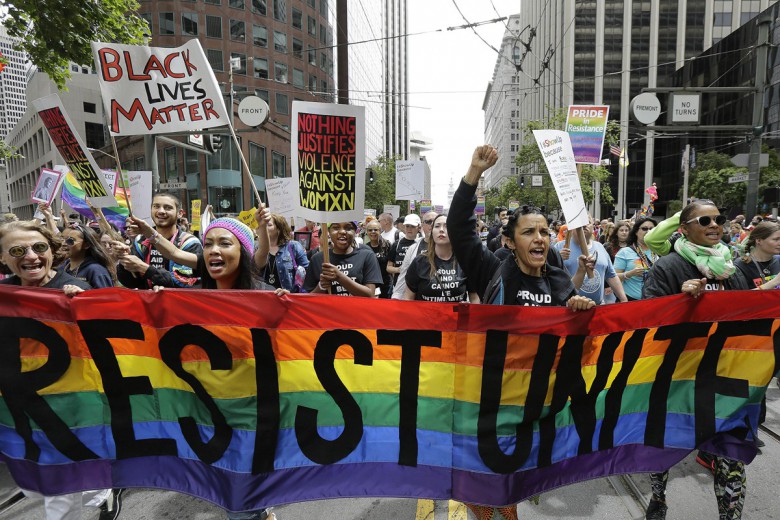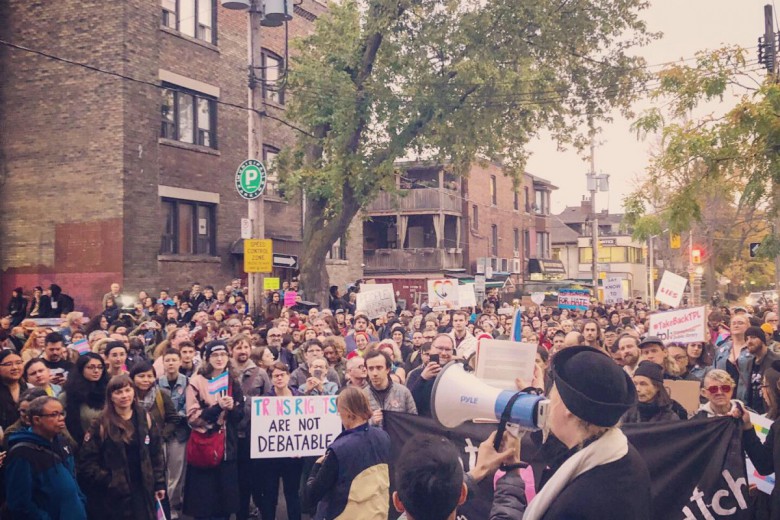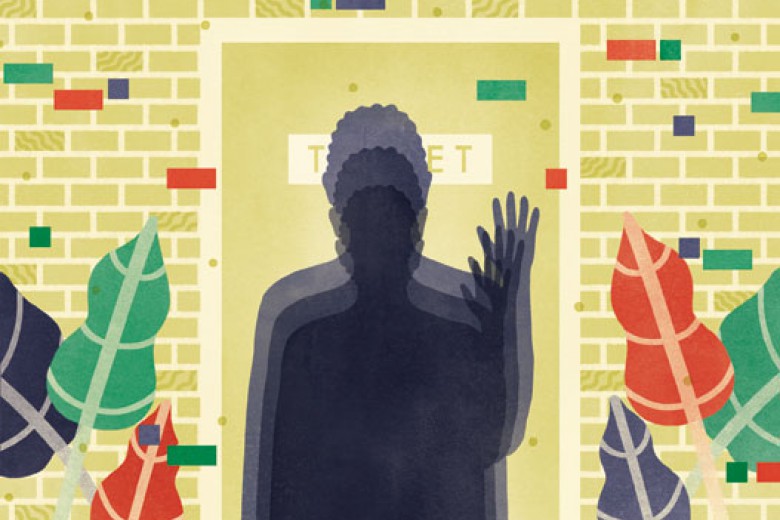
In 2014, a video of Debi Jackson addressing a large audience in Kansas City went viral. Jackson spoke about her initial confusion in relation to her child’s gender presentation. After Googling AJ’s behaviour, Jackson came across the possibility that her child was a transgender girl. Jackson then took AJ to a pediatrician and made an appointment with a child psychologist. But, as she tells the audience, what finally allowed her to accept her child as her daughter was AJ asking, “Mom, you know I’m really a girl, right?”
Jackson’s video made the rounds on LGBTQ platforms like Glaad.org, The Advocate, and Pasadena Parents, Families and Friends of Lesbians and Gays (PFLAG), but it also had a wider audience through Huffington Post and on Facebook. It’s not the only widely shared video that features the story of a transgender child, though. A local Ohio news website ran a similar story about a young girl named Zay; I Am Jazz premiered on TLC; and Jacob’s Journey aired on NBC. There is no doubt that the new trope in transgender storytelling, be it in news media, documentaries, or reality TV, features a transgender child (usually with cisgender parents looming in the background) – but rarely do those stories benefit the child.
These narratives travel a familiar arc: parents think their child is “confused”; then they become concerned; finally, sometimes suddenly, they accept their child. As poet and professor Cat Fitzpatrick notes, these stories are “100 per cent about the parents, so that the kid and her desires and choices figure only [as] something for them to negotiate or overcome (with the help of doctors!).” These are stories constructed for a cisgender audience within a framework that privileges the heteronormative, nuclear concept of the family, but they are also part of a wider range of heteronormative assumptions about what constitutes queer success.
Transgender cultural critic Jack Halberstam has pointed out that, just as gay and lesbian successes have been measured by the fight for gay marriage, trans people’s success stories only count when they conform to white, able-bodied, cisgender, heteronormative standards. These standards of success are a smokescreen that distracts from more imperative queer social justice issues like poverty, housing, and HIV/AIDS. Halberstam, like many other trans authors, knows there is no room for solidarity when those in the trans community are forced to spend time vying for approval outside of it.
The narrative trope of the transgender child also assumes – indeed, commands – that being trans means both knowing you are trans when you are quite young and transitioning when you are young. This expectation obscures the fact that medical transition isn’t possible for many trans people, nor is it even necessary, and in some instances, it is not even wanted. By framing a successful (medical) gender transition through cisgender standards of what one gender should look like, the future for a trans child, teen, or adult denied these medical interventions disappears. Without more examples of what being transgender without surgery means, there is no option – and, often, no sense of hope – for many transgender youth.
In late December 2014, transgender teenager Leelah Alcorn committed suicide by jumping in front of a moving truck after her parents refused to let her transition and insisted that she instead go to conversion therapy. In her suicide note, she wrote that delaying her transition until after she was out of her parents’ house was a fate just as bad as death. Zander Mahaffey, a trans teen boy, also took his life for similar reasons.
Since Alcorn’s death, there has been an overwhelming focus on transgender youth, including videos like those about Debi Jackson and AJ. Many comments around the video seem to echo similar sentiments: If Leelah’s mother had been like Debi Jackson, Leelah might still be alive. Comments like these not only embed the lives and survival of trans children into cisgender parents’ expectations and acceptance, they ignore the fact that our current culture links the revelation of gender identity with immediate physical changes that are always vetted through cisgender standards of what it means to be one gender or another. These assumptions promote a narrow idea of what a body (and life) should look like.
YouTube videos like Debi Jackson’s, and the reality TV shows about transgender youth, are conversations between cis parents and cis audiences. While these stories can be encouraging, they cannot be the only ones we tell. To deconstruct these narratives, we need to challenge the importance of parental (and cisgender) approval, and support trans youth talking to other trans youth so they can determine what success means for themselves. After all, if children really are our future, why is it that we only measure them through the lens of adults’ assumptions?






